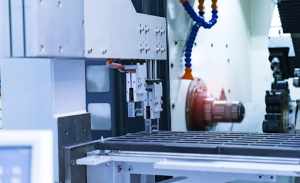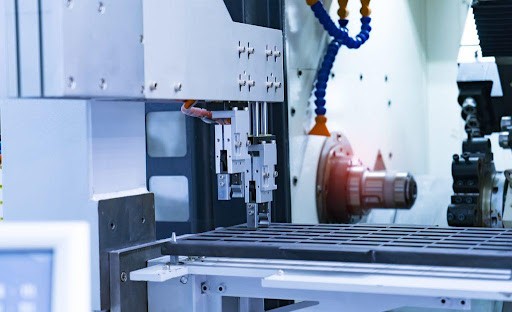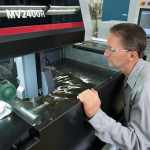The ability of man to shape and mold the world around us is truly remarkable. But none of it would be possible without the help of tools. We learned how to pick the best materials from nature and change them to suit our needs. This process is ever-evolving and never-ending, and seeing the latest developments in science, it can only achieve unforeseen heights in the future.- Manufacturing Machine Shop
Machine tools are the driving force of the industrial world; they allow manufacturers to handle metals and other rigid materials to produce a variety of components to be used in practically any field you can imagine. From the simplest appliances to the most complex spacecrafts, technology relies on metal parts, and machine shops are there to provide them. Visit https://www.lincolntech.edu/news/skilled-trades/welding-technology/what-is-metal-fabrication for more.
To gain some insight into machining, we must first understand what these shops do, what materials they use, and how they employ tools and techniques to deliver their products to the world. The best manufacturers cleverly combine their workforce and machinery to achieve the best possible results and provide the ultimate customer experience.
Machining in a Few Words
Since the beginning of the Industrial Revolution, we have developed powerful and versatile machinery to improve all aspects of life in only a few centuries.
But using metals had started long, long before that. What used to be science-fiction in the past is now very much a reality, and manufacturers have advanced their methods to use micro laser cutting, ultrasonic-assisted cutting, and other specialized approaches to achieve near-perfect precision. Machine shops are so detail-oriented that if you tried to get the same results with basic tools at home, it would probably end in bitter disappointment.
The components are produced by manufacturing shops with high accuracy to function either as stand-alone parts or in combination with other elements. Materials like wood or ceramic are also used in machining techniques. However, shops primarily focus on metals due to their excellent properties, such as conductivity, high melting points, malleability, etc.
The most widely used metals for machining are stainless steel, copper or its alloys, aluminum, brass, titanium, etc. Out of these, fabricators mostly prefer steel because of its resistance to corrosion and sheer strength. Electrical and medical industries will often use plastic, which is very cost-effective.
Being a qualified and competent machinist is no easy task. They use all sorts of methods, from sketches all the way to CAD (computer-aided design), with lathers, grinders, stamping presses, and dies to create precisely cut parts and elaborate designs. What we take for granted in our households and workplaces is a product of many hours of hard work, and machinists deserve all praise.
A Variety of Tools- Manufacturing Machine Shop

On mentioning the word “tool,” usually a hammer or a screwdriver pops to mind. While most people have this stuff at home, shops use advanced machining tools for different stages of manufacturing.
Let’s take boring as an example. Drilling holes – sounds simple and, well, boring, doesn’t it? Actually, it’s a refined and widespread technique in metallurgy. They use it to enlarge and finish holes that already exist and have been drilled or cast, usually with a single-point cutting tool. CNC (computerized numerical control) boring is superior to drilling because of the accuracy in increasing the diameter of the hole.
Cutting is another basic technique to transform metal sheets into new objects. For that purpose, machine shops use various devices like hacksaws, circular saws, metal-air shears, angle grinders, and many other specialized tools to cut the material. For instance, laser cutting is very effective in that it provides small deformation of the metal, low heat input, high speed, and surgically precise cuts.
Yet another method of metal manipulation is grinding, which uses an abrasive wheel to cut off tiny chips from the metal workpiece. Grinders are especially effective for achieving high accuracy in shaping and smooth surfaces. The most commonly used types are the belt, cylindrical, and bench grinder.
What about turning? Well, turning tools are placed on lathes to cut or finish the outside surface of a metal piece while it’s rotating. Sometimes they’re used to create cylinders. Much like grinding, this method ensures a good surface finish, and it’s also easier to maneuver than other machining processes that require a bit more physical strength.
Shops Offer Support- Manufacturing Machine Shop
Like any other technology, machine tools need regular maintenance to function correctly. They might look sturdy and relentless on the outside, but even metals have their weaknesses and depend on expert services to last. Nowadays, computer-aided machining is more electronic and less cumbersome than before, which could be daunting for some shop owners. Luckily, manufacturing shops offer support services that will surely prolong the life of your equipment.
Machines consume a lot of energy, resulting in high costs. Older models with malfunctions might consume even more, so letting qualified technicians take care of the job can reduce these costs to a great extent. Sometimes the entire machine tool needs repairing, while other times, they need to replace individual components. Whatever the cause of the issue, machining specialists have the expertise to get your tools back on track.
Machine shops use a line of devices where the entire process is held up if one crucial element breaks down. The primary objective is to keep the machinery working seamlessly, and shops like UHI Group – Manufacturing Machine Shop offer regular maintenance and free tips. Support services have had enough experience with tools to know which approach to take, and by communicating the problem with them, they will provide lasting replacements or repairs.
Large machining tools are pretty expensive. Breaking down means extra costs, and this makes manufacturers frown. Hence, technicians always stress the importance of extending their life and keeping them functional. They can help you pick the best tools available, program and calibrate their software, and update it in the future.
Final Thoughts
Manufacturing is a fast-paced world, with new tools and solutions invented constantly. Keeping up with these changes can be quite a challenge, and machine shops are well-aware of this. The best in the business try hard to make your machine tools as effective as possible and increase their durability.













